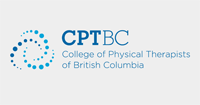Orthopedic

Orthopedic physiotherapy, also known as musculoskeletal physiotherapy, is a specialized area of physiotherapy that focuses on diagnosing, treating, and rehabilitating injuries and conditions affecting the musculoskeletal system, including bones, joints, muscles, ligaments, and tendons. The goal is to restore function, alleviate pain, and improve overall musculoskeletal health.
Key Aspects of Orthopedic Physiotherapy:
Diagnosis: Orthopedic physiotherapists assess injuries and conditions to determine the underlying cause and appropriate treatment plan.
Treatment: They utilize various techniques like manual therapy, exercise therapy, and modalities like heat and ice to address pain, improve movement, and restore function.
Rehabilitation: They develop personalized rehabilitation programs to help patients recover from injuries, surgeries, and chronic conditions.
Prevention: Orthopedic physiotherapists also focus on preventing future injuries and conditions by educating patients on proper body mechanics and exercise techniques.
Conditions Treated: Orthopedic physiotherapy can address a wide range of conditions, including:
- Sports injuries (sprains, strains, fractures, etc.)
- Post-surgical rehabilitation (following knee, hip, or shoulder surgery)
- Chronic pain (back pain, neck pain, etc.)
- Arthritis
- Osteoporosis
- Injuries to muscles, ligaments, and tendons
Benefits of Orthopedic Physiotherapy:
- Pain relief
- Improved range of motion and flexibility
- Increased strength and endurance
- Restoration of function
- Prevention of future injuries
- Improved quality of life
In Summary: Orthopedic physiotherapy is a valuable resource for individuals experiencing musculoskeletal problems, providing comprehensive care to restore function, reduce pain, and improve overall health.




